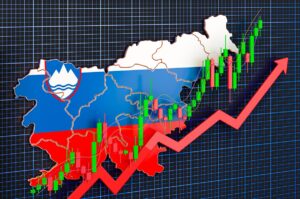The central agenda of the summit was the revitalisation of trust.
Mirek Dusek, WEF’s Executive Director, stated that the theme is a direct response to the discernible decline in trust among societies and nations. Klaus Schwab, the WEF’s founder, highlighted in his opening remarks the urgent need to rebuild confidence in our collective future, our capability to surmount challenges, and in each other. He pointed out the irony of our world being more interconnected yet more fragmented than ever before.
The WEF’s Global Risks Report for 2024 underscored three principal risks confronting humanity: eroding trust in institutions and unease about innovations, misinformation as the foremost short-term risk in a year marked by unprecedented elections worldwide, and societal polarization, intensified by distrust in information sources.

UN Secretary-General Antonio Guterres expressed alarm at the systematic erosion of principles and standards once deemed fundamental, stressing that trust restoration necessitates significant reforms in global governance to navigate the geopolitical tensions of a newly multipolar world.
Economically, there was a sense of cautious optimism about the global economic outlook, tempered by considerable apprehensions regarding potential traps. Despite this, trade and digital economy sectors were identified as potential areas for growth and resilience.
The forum’s geopolitical discussions were varied and intricate, focusing on issues like the Ukrainian conflict and its worldwide repercussions, escalating international tensions and the emergence of a multipolar world, challenges faced by fragile states and in regional conflicts, cyber security threats and the scourge of misinformation, and the interplay of food security and climate change.

AI’s vast potential across sectors including healthcare, education, and climate change mitigation was widely acknowledged, along with the imperative of responsible AI development and governance. Additionally, the conference delved into clean energy technologies, the role of technology in climate change adaptation, the potential and challenges of blockchain technology, advancements in robotics, the progress and ethical concerns of genetic engineering, and the possibilities and pitfalls of the metaverse.
Attended by over 2,800 delegates, including more than 60 heads of state and government, the forum provided a platform for the exhibition of technological advancements, recognition of their benefits, and consideration of their ethical and social implications. Key attendees included U.S. Secretary of State Antony Blinken, Israeli President Isaac Herzog, Ukrainian President Volodymyr Zelenskyy, Argentine President Javier Milei, UN Secretary-General Antonio Guterres, NATO Secretary-General Jens Stoltenberg, French President Emmanuel Macron, European Commission President Ursula von der Leyen, and Chinese Premier Li Keqiang.







